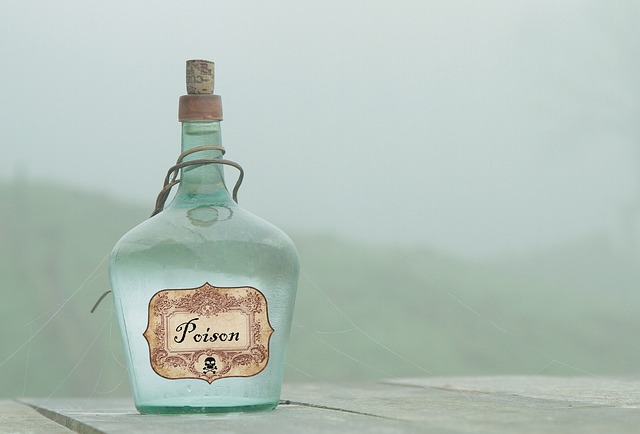How to Say That Is Funny in German
Learning a new language should be fun. And every language has some colorful expressions for ordinary things, which make the language richer. And more entertaining. The German language is no exception. In fact, there are quite a few and entertaining phrases which sound pretty weird. So today we will look at some funny German phrases which will make you giggle.
Table of Contents
- Weird German Phrases
- 1. auf dem Holzweg sein
- 2. die Kirche im Dorf lassen
- 3. die Nase voll haben
- 4. ein Brett vor dem Kopf haben
- 5. einen Zahn zulegen
- 6. Hand und Fuß haben
- 7. Ich verstehe nur Bahnhof
- 8. nicht mehr alle Tassen im Schrank haben
- 9. nun ist der Ofen aus
- 10. über seinen Schatten springen
- 11. sich etwas hinter die Ohren schreiben
- 12. sich nicht ans Bein pinkeln lassen
- 13. mit dem Klammerbeutel gepudert
- Funny German Phrases Drinking
- 1. da kannst du Gift drauf nehmen
- 2. Dienst ist Dienst und Schnaps ist Schnaps
- 3. eine Milchmädchenrechnung aufmachen
- 4. einen Kater haben
- 5. jemandem reinen Wein einschenken
- German Funny Phrases with Animals
- 1. auf den Hund kommen / vor die Hunde gehen
- 2. aus einer Mücke einen Elefanten machen
- 3. Bei dir piept's wohl!
- 4. da liegt der Hund begraben
- 5. da wird der Hund in der Pfanne verrückt
- 6. das Leben ist kein Ponyhof
- 7. die Katze im Sack kaufen
- 8. Du hast doch einen Vogel
- 9. Ich glaub, mein Schwein pfeift
- 10. Man hat schon Pferde kotzen sehen – vor der Apotheke!
- 11. sich einen Bären aufbinden lassen
- 12. nicht schlecht, Herr Specht
- 13. unter aller Sau
- Funny Phrases in German about Food
- 1. Alles hat ein Ende, nur die Wurst hat zwei
- 2. da haben wir den Salat
- 3. das geht mir auf den Keks
- 4. das ist mir Wurst
- 5. einen weichen Keks haben
- 6. in den sauren Apfel beißen
- 7. jemandem die Butter vom Brot nehmen
- 8. jetzt geht's um die Wurst
- Funny German Phrases with a maritime Background
- 1. die Segel streichen
- 2. Schlagseite haben
- 3. wieder auf Kurs bringen
- Funny German Phrases with a military Background
- 1. 08/15 — Null Acht Fünfzehn
- 2. ich kenne doch meine Pappenheimer
Weird German Phrases

Image by jplenio from Pixabay
1. auf dem Holzweg sein
Translation: being on the wood way
Meaning: being on the wrong track
English equivalent: to bark up the wrong tree
Origin:This weird German phrase was recorded for the first time in the 15th century. Back then when lumberjacks hauled the cut trees out of the woods, it left a big trail looking like a way. But when you followed it, you just ended up in a dead end in the woods.
Example: Wenn du glaubst, dass du eine Gehaltserhöhung bekommst, obwohl du ständig zu spät zur Arbeit kommst, dann bist du auf dem Holzweg!
If you think you will get a pay rise despite showing up late at work all the time, you are totally wrong!
2. die Kirche im Dorf lassen
Translation: to leave the church in the village
Meaning: do not exaggerate, stay humble
English equivalent: don't go overboard
Origin: This expression goes back to a time in which the Catholic Church still carried out many processions. But as villages were quite small, the processions quickly became too big to stay within the village borders and the processions spread to the surrounding areas. This caused a lot of criticism and many people demanded to leave the church in the village. Or more precisely that the church congregation should stay within the village.
Example: Statt jedes Jahr ein neues Auto zu kaufen, solltest du lieber die Kirche im Dorf lassen!
Instead of buying a new car every year, you should rather stay humble!
3. die Nase voll haben
Translation: having a "full" or snotty nose
English equivalent: being annoyed
Origin:Having a snotty nose (e.g. during a cold) doesn't feel good. So when you have this feeling, you are really annoyed.
Example: Du kommst schon wieder zu spät! So langsam habe ich aber die Nase voll davon!
You are late again. I'm really fed up with this!
4. ein Brett vor dem Kopf haben
Translation: to have a board in front of your head
English equivalent: to be a blockhead
Origin:This expression goes back to farming in old times, when oxen were used to plow or pull a cart. In order to do so, they were usually equipped with a head harness. In case they had their own ideas where to go, a board was added to cover the eyes of the animals so they could not see where they were being led to.
Example: Warum verstehst du mich nicht, hast du ein Brett vor dem Kopf?
Why don't you understand me, are you stupid?
5. einen Zahn zulegen
Translation: to add a tooth
English equivalent: to speed up
Origin:The first cars and planes used toothed wheels to control the engine. So in order to
go faster, you had "to notch a tooth up".
Example: Wenn wir rechtzeitig am Bahnhof sein wollen, müssen wir einen Zahn zulegen!
If we want to reach the train station in time, we have to go faster!
6. Hand und Fuß haben
Translation: to have hand and foot
Meaning: to make sense, to be solid
Origin: There are old legal customs behind the expression. In the middle ages offenders were punished by cutting off the right hand, with which most people wielded their sword and held the reins. As well as cutting off the left foot, which first stepped into the stirrups. So a man crippled in such a way was unable to fight on horseback. But if you still had both, hand and foot, you were strong and useful as a soldier.
Example: Richards Plan um schnell reich zu werden, hat weder Hand noch Fuß!
Richards get-rich-quick plan just doesn't add up!
7. Ich verstehe nur Bahnhof
Translation: I only understand train station
Meaning: I don't understand you, I'm not interested
Origin: During the First World War, the soldiers became battle weary and the train station was their symbol of hope for returning home. So whenever someone wanted to talk to them about anything other than going home, their reply was "I only understand train station."
Example: Als der Mathelehrer über Integrale sprach, habe ich nur Bahnhof verstanden.
When the maths teacher spoke about integrals, I didn't understand a single word!
8. nicht mehr alle Tassen im Schrank haben

Image by Jutta Zeisset from Pixabay
Translation: not having all cups in the cupboard
Meaning: to be crazy
English equivalent: to be one sandwich short of a picnic
Origin: Not certain, but it most likely goes back to the yiddish word "toshia", meaning mind or intellect. So if something is wrong with your "Tassen" oder "toshia", you're not quite right in the head.
Example: Peter will, dass ich ihm meinen besten Anzug für einen Junggesellenabschied leihe. Der hat doch nicht mehr alle Tassen im Schrank!
Peter asked me to borrow him my best suit for a stag party. He must be barking mad!
9. nun ist der Ofen aus
Translation: now the oven is off
Meaning: that's it, game over
Origin: Winters can get pretty cold in Germany, so heating is important. If you don't watch the fire in your oven, you may be finished.
Example: Wenn du wieder eine Schramme in meinen Wagen machst, dann ist der Ofen aus!
If you put a scratch in my car again, you are done!
10. über seinen Schatten springen
Translation: jump over your own shadow
Meaning: leave your comfort zone
Origin: It's impossible to jump over your own shadow. So this German fun phrase means doing something that's uncomfortable or hard to do.
Example: Du solltest nicht fernsehen, sondern über deinen Schatten springen und für den Test morgen lernen.
You shouldn't watch TV but get out of your comfort zone and prepare for the exam tomorrow.
11. sich etwas hinter die Ohren schreiben
Translation: to write something behind your ears
Meaning: to better remember something
Origin: Another German phrase with origins in the middle ages, when people often took their children with them to witness important events or negotiations. So the children could later testify what was agreed upon, e.g. were a border between two areas should be. In order to ensure the children wouldn't forget, the would give them a slap on the ears at the important moments. In this sense, they wrote it "behind their ears."
Example: Ich will nicht, dass ihr immer am Flußufer spielt! Schreib dir das hinter deine Ohren!
I don't want you playing on the riverbank all the time! Write that behind your ears!
12. sich nicht ans Bein pinkeln lassen
Translation: not let anyone pee at your leg
Meaning: not to put up with everything
Origin: Not everyone is friendly. Some people try to get an advantage by talking badly about you in front of others, e.g. in front your boss.This German phrase means, you're not willing to let that happen and will take measures against it.
Example: Müller hat dem Chef erzählt, ich hätte meinen Bericht zu spät abgegeben. Das habe ich richtig gestellt. Ich lasse mir doch von dem nicht ans Bein pinkeln!
Müller told the boss that I had submitted my report too late. I put that right. I'm not going to let him pull the wool over my eyes!
13. mit dem Klammerbeutel gepudert
Translation: powdered with the peg bag
English equivalent: to be a half-wit
Origin: In the old days housewives had a bag with clothes pegs. And another one with powder for the baby. If they powdered the baby with the peg bag instead of the powder bag, the baby would have suffered and have some serious damage.
Example: Der Typ hat mir gerade die Vorfahrt genommen. Der ist wohl mit dem Klammerbeutel gepudert!
That bloke just took my right of way. He must be stupid!
Funny German Phrases Drinking
1. da kannst du Gift drauf nehmen

Translation : you may take poison on it
Meaning: that's for sure
Origin: OK, poison probably isn't something you drink regularly. But where does this strange expression come from? Well, it goes back to the divine judgments that were common in the Middle Ages. A suspect was forced to take a poisoned drink or bite. In case he remained unharmed, his innocence was proven. If he died, it was obvious he was guilty. So no harm was done. At least in the eyes of the executioners…
2. Dienst ist Dienst und Schnaps ist Schnaps
Translation: duty is duty and booze is booze
Meaning: There's a time to work, and another time to celebrate
Origin: It simply means you should separate work from party time.
3. eine Milchmädchenrechnung aufmachen

Translation: to make a milk maid's calculation
Meaning: to plan for something which won't happen
English equivalent:
Origin: It probably goes back to a French fairy tale, where a milk maid is on her way to the market. On her walk she dreams about the things she can do with the money she'll make from selling her milk. Like buying some chickens, making more money by selling milk and eggs, buying a pig and so forth. Unfortunately while dreaming she stumbles and spills her milk. So her dreams will never come true.
4. einen Kater haben
Translation: to have a tomcat
Meaning: to have a hangover
English equivalent:
Origin: As often there are several possible explanations. One is that your brain feels as if you had a cat scratching at it.
Example: Nach der Firmenfeier hatte ich einen üblen Kater.
I had a serious hangover after the company party.
5. jemandem reinen Wein einschenken
Translation: to pour pure wine to someone
Meaning: to be honest with someone, even if it's embarrassing
Origin: One of many funny German phrases stemming from the middle ages. Dishonest landlords often watered down the wine they served their customers. Only a landlord serving pure wine was honest.
Example: Mein Mann sucht immer noch den Autoschlüssel. Ich muss ihm wohl reinen Wein einschenken und ihm sagen, dass ich ihn verloren habe.
My hubby is still looking for the car key. I guess I have to be honest with him and tell him that I lost it.
German Funny Phrases with Animals
1. auf den Hund kommen / vor die Hunde gehen
Translation: to go to the dogs
English equivalent: to go to the dogs
Origin: There are several possible explanations. One is that the rope of the gallows was nicknamed a dog collar in the middle ages.
Example: Nachdem er seine Arbeit verloren hat, ist Peter wirklich auf den Hund gekommen.
After he lost his job, Peter has really gone to the dogs.
2. aus einer Mücke einen Elefanten machen
Translation: to turn a mosquito into an elephant
Meaning: to exaggerate
English equivalent: to make a mountain out of a molehill
Origin: Already in ancient Greece a similar phrase existed about people who blow up things.
Example: So schlecht war die Bedienung auch nicht, dass du dich beim Geschäftsführer beschweren musst. Jetzt mach doch nicht aus jeder Mücke einen Elefanten!
The service wasn't that bad after all. I really don't think you have to see the managing director. Don't make a mountain out of a molehill!
3. Bei dir piept's wohl!
Translation:You must be chirping!
Meaning:You must be crazy.
Origin:see #4
4. da liegt der Hund begraben
Translation : that's where the dog was buried
English equivalent: that's the crux of the matter.
Origin: In the old time people stored their most precious possessions in treasure cases. These cases often carried the picture of a devil or a savage dog to scare off thieves. So when you found the place where "the dog" was buried, you had found the most important thing.
5. da wird der Hund in der Pfanne verrückt
Translation: The dog in the pan goes crazy there
English equivalent : That's bonkers
Origin:According to German folklore a man named Till Eulenspiegel traveled from town to town in the 14th century. He always played the fool, but his pranks often showed people that they weren't as clever as they thought. But some pranks were also just some kind of cruelty. One of the stories goes that Till Eulenspiegel worked as temp at a brewery. The brewer asks him to cook the hops. But unfortunately the brewer's dog is also named Hop, so Till Eulenspiegel throws the dog into the brew kettle. A brew kettle is called "Sudpfanne" in German, so the dog went crazy in the (hot) pan.
6. das Leben ist kein Ponyhof
Translation: life is not a pony farm
Meaning: life can be tough, get used to it
Origin: A rather recent German phrase which originally was the title of a song by there german punk band "Die Schröders". It references to little girls who love to play with toy ponies. But unfortunately life isn't all play and having fun. Instead things can get hard, so you better get used to it.
Example: Als ich zur Armee kam, wurde mir klar: das Leben ist kein Ponyhof !
When I joined the army, I realized life isn't just fun and games!
7. die Katze im Sack kaufen
Translation: to buy a cat in a sack
Meaning: to buy something unseen, to accept something without due diligence
Origin: In the past, livestock was sold at farmers' markets. It sometimes happened that a dishonest trader cheated a customer by putting only a "cheap" cat in the sack instead of an expensive piglet or rabbit.
Example: Bevor du den Wagen kaufst, solltest du eine Probefahrt machen. Du willst doch nicht die Katze im Sack kaufen!
Before you buy that car, you should take it to a test drive. After all, you don't want to buy it without trying it out first.
8. Du hast doch einen Vogel
Translation: You really have a bird
Meaning: You are crazy
Origin:In the middle ages people thought that birds had built a nest in the head of people with mental problems.
Example: Der Chef will, dass ich unbezahlte Überstunden mache. Der hat doch einen Vogel!
The boss wants me to work unpaid overtime. He must be mad!
9. Ich glaub, mein Schwein pfeift
Translation: I think my pig whistles
Meaning: I can hardly believe this
Origin: Pigs can't whistle. So when you think it does, something really astonishing is happening.
Example: Der Chef will, dass ich unbezahlte Überstunden mache. Der hat doch einen Vogel!
The boss wants me to do unpaid overtime. He must be barking mad!
10. Man hat schon Pferde kotzen sehen – vor der Apotheke!
Translation: One has seen horses throwing up – in front of the pharmacy!
Meaning: something hard to believe happened or might happen
Origin: Like the phrase above, another one of the funny German phrases about something really unusual. Horses can't throw up. So when you saw them doing it, something really hard to believe has happened or is about to take place. The addition of the pharmacy is used to strengthen the phrase, as a pharmacy is a place which sells remedies against nausea.
11. sich einen Bären aufbinden lassen
Translation: to get a bear tied on your back
Meaning: being lied at
Origin: It's not quite clear where this phrase comes from. But it is probably an alteration of the old Germanic "bar", which meant to carry. The "bar" changed to "Bär", in the sense of you can't tie somebody a bear on his back without him noticing. But if he manages to pull that trick off, you've been fooled.
Example: Als der Autoverkäufer dir sagte, dass die Reifen an diesem Wagen ganz neu sind, hat er dir aber einen ganz schönen Bären aufgebunden!
When the car dealer told you the tires on this car are brand new, he fooled you pretty badly!
12. nicht schlecht, Herr Specht
Translation: not bad, Mr. Woodpecker!
Meaning: I am impressed
Origin: A humorous phrase of acknowledgment. The woodpecker only got in there because of the rhyme.
Example: Wie findest du mein neues Auto? — Nicht schlecht, Herr Specht!
How do you like my new car? — Wow, really nice!
13. unter aller Sau
Translation: below all sows
Meaning: rotten
Origin: Despite being quite intelligent and charming, pigs are often considered dirty and inferior animals. So if something is even "below all sows", it is really rotten indeed.
Example: Wie war der neue Star Wars Film? — Nicht schlecht, aber der Ton im Kino war unter aller Sau!
How was the new Star Wars movie? — Not bad, but the sound system in the cinema really sucked!
Funny Phrases in German about Food
1. Alles hat ein Ende, nur die Wurst hat zwei
Translation: everything has an end, only the sausage has two
Meaning: funny remark to lift the mood when something ends
Origin: German idiom with British origin. Made popular in the 1980's by a German pop song with the same name.
2. da haben wir den Salat

Image by Jill Wellington from Pixabay
Translation: now we have the salad
Meaning: now we are in a right mess
Origin: In a salad all ingredients are mixed up. So if you have a salad, things are out of order.
3. das geht mir auf den Keks
Translation: this is getting on my cookie
Meaning: this is annoying
Origin: "Keks", the German word for cookie, stands here as a synonym for head or brain (see also "einen weichen Keks haben" below). It is similar to the English "this is getting on my nerves." There are variations of this phrase like "das geht mir auf den Senkel" (this is getting on my shoe lace) or "das geht mir auf den Wecker" (this is getting on my alarm clock).
4. das ist mir Wurst
Translation: this is sausage to me
Meaning: I don't care
Origin: There are two theories about the origin of this phrase. The first one is that in former times there were no regulations what kind of meat had to be in a sausage. So butchers took low quality meat and leftovers to fill their sausages. In other words: they didn't care.
The other theory is that a sausage looks the same on both ends. So it doesn't matter at which end you start eating it.
5. einen weichen Keks haben
Translation: to have a soft cookie
English equivalent : to be soft in the head
Origin: Once more, "cookie" stands here for "head" or "brain."
6. in den sauren Apfel beißen

Translation: to bite the sour apple
Meaning: to do something which is necessary, but uncomfortable
Origin: Most people don't like sour food, as our brain associates sour with unripe and unready to eat. So the sour apple in this German funny phrase stands for something unpleasant.
Example: Die Garage sieht aus wie ein Müllhaufen. Ich muss wohl in den sauren Apfel beißen und aufräumen.
The garage looks like a right mess. I guess I have to bite the bullet and tidy it up.
7. jemandem die Butter vom Brot nehmen
Translation: to take the butter off somebody's bread
Meaning: to take the bread out of sb.'s mouth
Origin: Germans love bread. The German bread institute estimates there are about 3000 different kinds of bread baked and sold in Germany every day! But eating just bread is a bit boring, it's much tastier with butter! So when someone takes the butter off your bread, he takes the best part of something and leaves you only with the dull bread.
8. jetzt geht's um die Wurst
Translation: now it's about the sausage
Meaning: now it's all or nothing
Origin: At fun fairs in the middle ages the first prize at games often was a sausage. Meat was expensive, so it was a big prize to poor people.
Example: Das ist das letzte Spiel dieser Saison. Wenn wir heute gewinnen, werden wir noch Meister. Heute geht's um die Wurst!
This is the last game of the season. If we win today, we will be the champions. It really counts today!
Funny German Phrases with a maritime Background

1. die Segel streichen
Translation: to paint the sails
Meaning: to give up, to leave
Origin: The funny part here is that "streichen" usually means "to paint" in German. But in the Navy "die Segel streichen" meant to reek the sails in combat as a sign of surrender. A ship without sails couldn't move, so this was the signal to the enemy they had won the battle and should cease fire.
Example: Die Party gefällt mir nicht, ich werde wohl bald die Segel streichen.
I don't enjoy this party, I guess I will leave pretty soon.
2. Schlagseite haben
Translation: to have list
Meaning: to be drunk, to be a bit unsteady on one's feet
Origin: A ship whose cargo isn't distributed equally leans or cranks to one side. This image of an unbalanced ship for a drunk person was probably first used by sailors. After weeks or months aboard their first trip in a foreign harbor often was to one of the many pubs, where they drank rather heavily.
3. wieder auf Kurs bringen
Translation: bring back on course
Meaning: to get back on track
Origin: A ship will never reach it's destination, if it doesn't take the right course. So if somebody or something is heading in the wrong direction, you have to get it back on course.
Funny German Phrases with a military Background
1. 08/15 — Null Acht Fünfzehn
Translation: Zero Eight Fifteen
Meaning: being common
Origin:The expression goes back to the German machine gun 08/15. It was invented in 1908 and much improved in 1915, hence the name 08/15. How this became a synonym for something rather common, isn't quite clear. One theory is that it was the standard machine gun for the German army in World War I. So to the soldiers it was "quite ordinary."
2. ich kenne doch meine Pappenheimer
Translation: I know my Pappenheimers
Meaning: to know exactly what to expect from someone
Origin: Gottfried Heinrich Graf zu Pappenheim was a German noble man, who led his own regiment during the 30 year war in Germany in the 17th century. His soldiers were known for being well-trained and won many battles.
The phrase itself comes from a play by German author Friedrich Schiller about one of the leading generals, Wallenstein. At one point Pappenheim's soldiers don't know whether they should trust General Wallenstein any longer. And he replies with this phrase, meaning "I know everyone of you. I know you will be loyal to me."
So originally it was a sort of praise. But nowadays it's more often used with a negative undertone, in the sense of "I know these guys are trouble makers!"
If you enjoyed our funny German phrases, you will also enjoy our funny German words.
Or if you feel a bit naughty, how about our funny German insults?
Either way, have fun!
boardmansweld1948.blogspot.com
Source: https://languageholic.com/funny-german-phrases/
0 Response to "How to Say That Is Funny in German"
Post a Comment